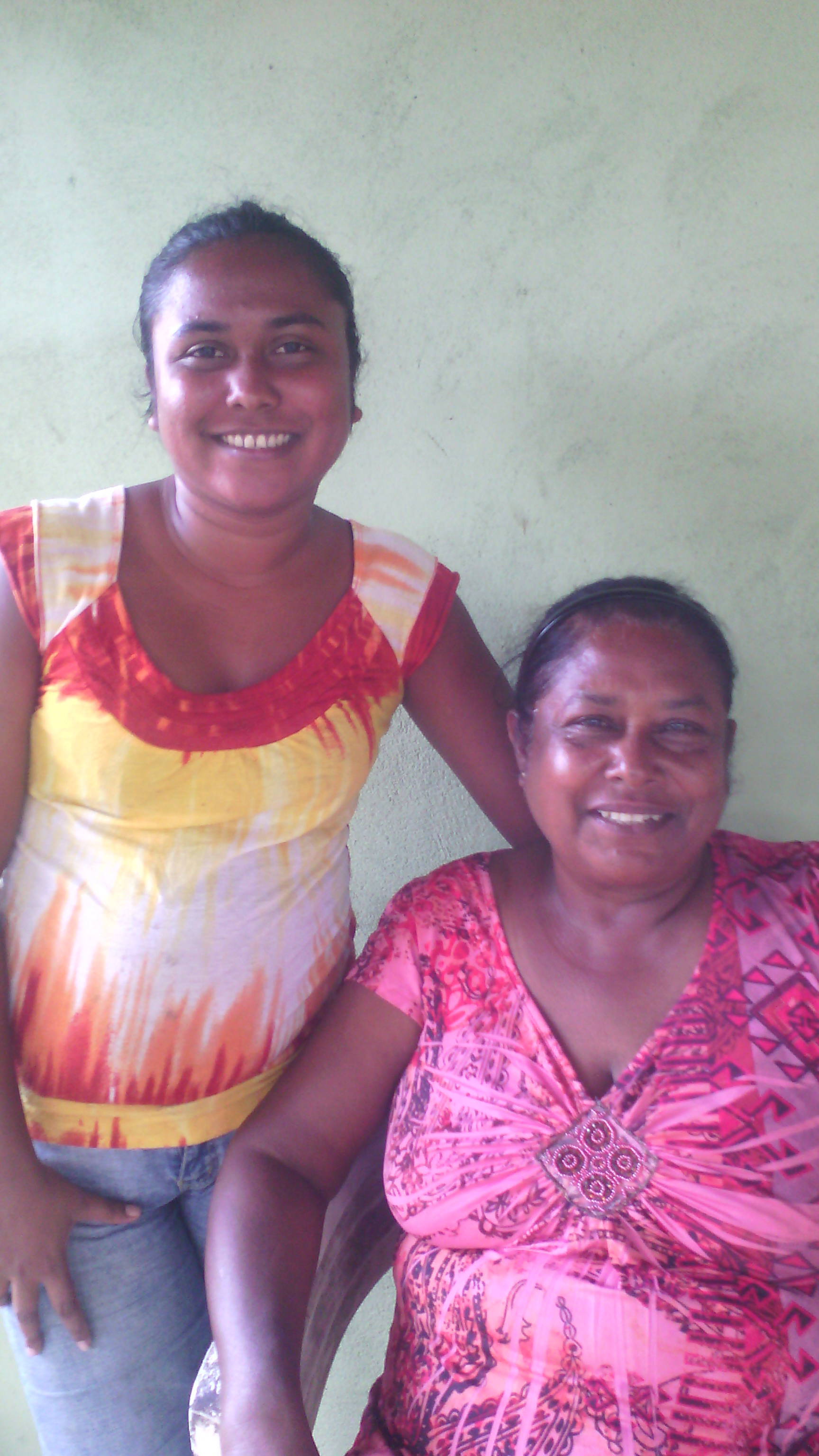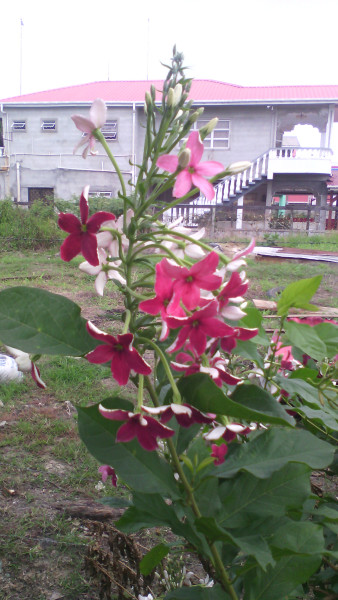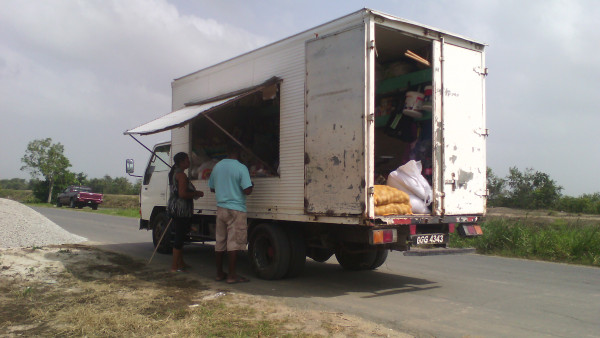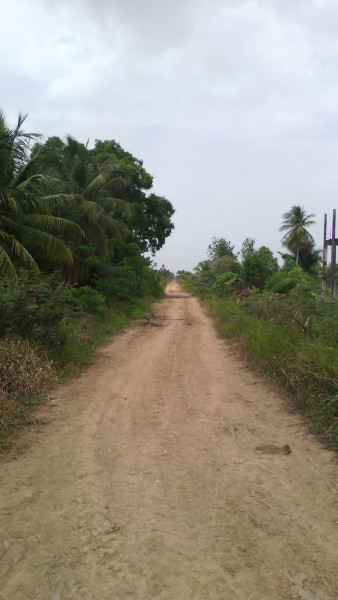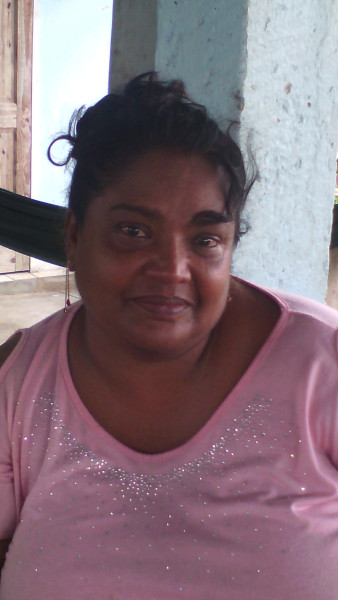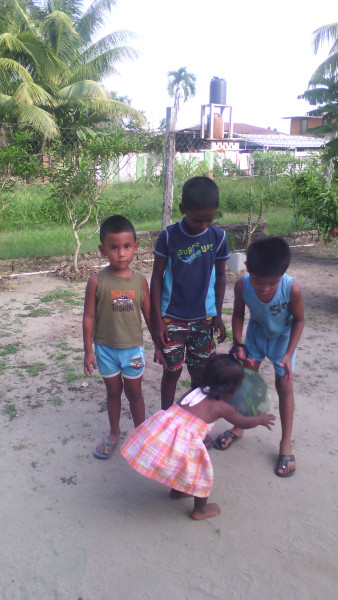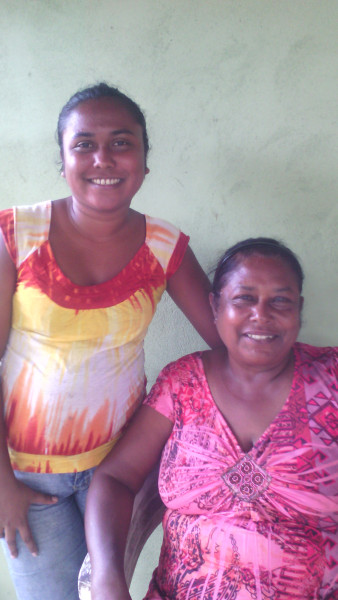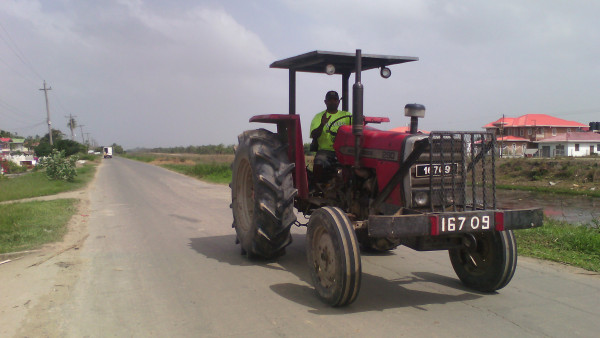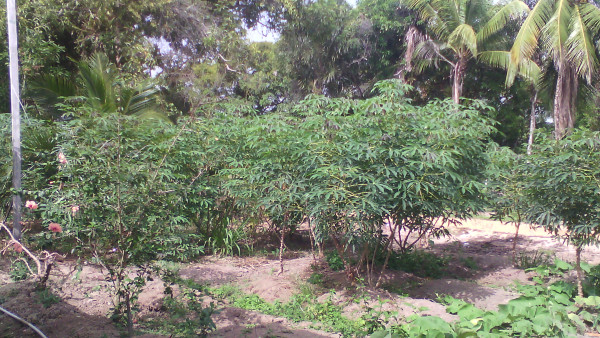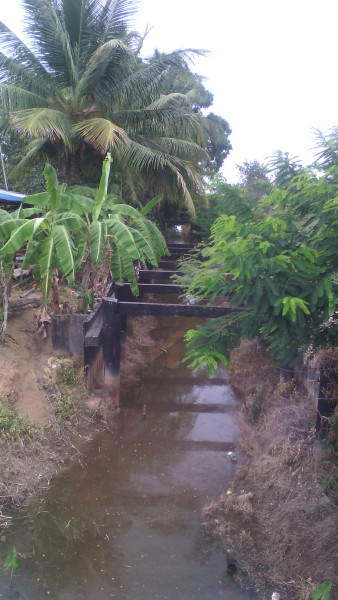Alliance is one of the villages situated in Canal Number Two. It is a small village with approximately 200 residents. The people here are not so reserved but interact with each other.
Flowering plants of many different kinds line walkways leading out to the road; it seemed there wasn’t a yard without flowers. A variety of fruits grow in the mile-length backdam and there are some farms there running their last crop of cane, because of the situation at the Wales Sugar Estate. Farmers said they are not sure what they will plant next.
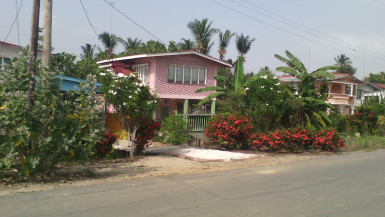
Nadia Ramdhanny was in the company of her granddaughter when the World Beyond Georgetown stopped by. The former Supply resident has been living in Alliance for almost 20 years. She rears a few fowls and ducks. She also reared meat birds for sale, but has not done so since last year though she plans to continue shortly.
Ramdhanny said she enjoys the service of the “mobile shops” as many call the grocery vans, which traverse the village. She passes the day doing chores, rearing her poultry and planting the yard. When asked about her neighbourhood she said, “I live here so much years and never hear two neighbours quarrel. I find the area that I’m living in to be quiet and peaceful. I find the neighbours here very friendly.”
She wishes though, that the road could be fixed and said that the village needs a better drainage system.
Debbie Boodhoo was shopping from the grocery van when we caught up with her. She moved to the village only six years ago from Philadelphia on the West Coast Demerara.
“For me, moving here was difficult at first. I accustom going to the Parika Market on Sundays to buy my vegetables. The greens van pass here often but I prefer travel to the Vreed-en-Hoop Market to buy my vegetables, since there’s a wide variety of fruits and vegetables there,” Boodhoo said. However, she buys her groceries from the van that passes by three times a week.
“Since I come here as a stranger they [neighbours] reach out. When we [she and her husband husband] came here the place was strange but the neighbours lend a helping hand in helping to clean up the place up,” she said.
Fruits, such as star apple, mango, banana, awara, orange, cashew and pineapple to mention a few, grow in abundance so the neighbours share among themselves instead of selling.
Boodhoo said that despite having her house broken into a few times when no one was at home, she has settled down well in the village.
She and her husband plant sugarcane, which, once harvested, goes to the Wales Estate for grinding, but over the last two years, this has not been working out well, given the low price they get for the cane.
The road where she lives seems to be in good condition, but Boodhoo feels it’s a bit too narrow and needs to be widened. Landline phones are only accessible to a few. Those who have landlines are persons sharing a dish. However, it is her hope that landlines can be accessible to all.
As I passed by one of the yards, two boys playing ‘War Break,’ using bats as guns spotted me. One shouted to the other, “Look one deh!” So I became a target and was ‘shot’ at. Not a smile crossed their serious faces, but they halted the warfare to follow me as I went to talk with the mother of one of the boys.
Anjanie Charran was resting in her hammock, having returned home early from work since construction is currently in process at her workplace. She is a Dental Health Aide at the West Demerara Regional Hospital.
Charran recalled that the village was once more populated but many of the residents have since migrated. The main occupation is farming but there are also nurses, teachers and other public servants living in Alliance as well. She said the people socialize with each other and you don’t come across people who cuss and quarrel.
Her mother, Basmattie Charran moved to Alliance from Columbia on the Essequibo Coast, 33 years ago when she got married.
“It was hard to leave Essequibo and come here. It was hard at first,” Basmattie said. The place was strange, she said. At that time, her father-in-law planted cane. She and her husband have discontinued that and plant a kitchen garden with cassava, plantain, eddo and banana. They also rear poultry and a few goats.
Back in those days they walked to Stanleytown to wait for transportation to get to the Wales Market. She used to walk to the nursery school a distance away to pick her children up every day. It was a lot of walking those days the woman said. The standpipes were situated on the road and so they had to walk to them also before they were able to get water.
Then in the 1990s transportation became more frequent. Today they have potable water in their yards and homes.
“The fare to the Stanleytown junction is eighty dollars,” she said, but smiled and added, “but if you gave the drivers a hundred dollars, don’t expect change.”
Basmattie said she now likes living in Alliance, though there are too many mosquitoes and her home was broken into twice.
